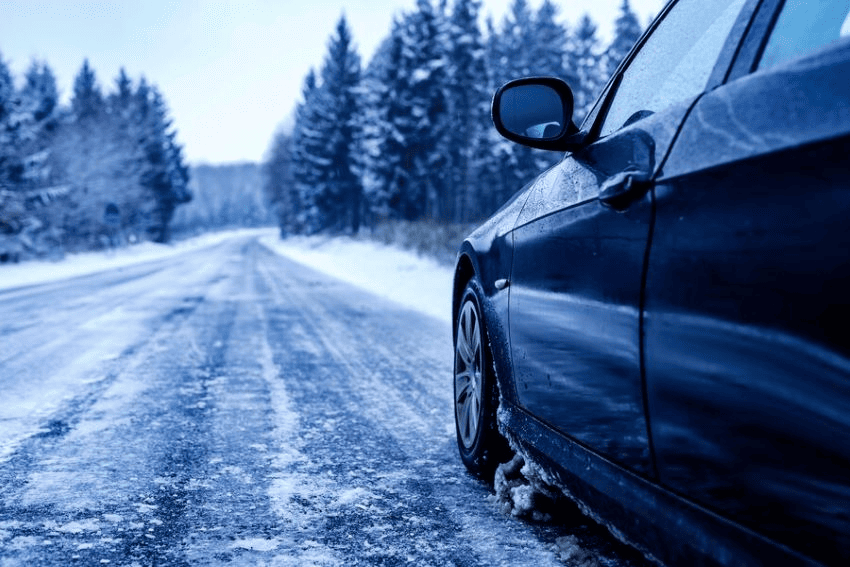
Winter in Colorado can be both breathtakingly beautiful and incredibly challenging for drivers. With the picturesque Rocky Mountains and snowy landscapes come treacherous road conditions and unpredictable winter weather. Whether you’re a Colorado resident heading to Summit County or planning a winter road trip to this scenic state, it’s essential to be well-prepared and informed about the legal aspects and safety measures associated with winter driving in Colorado. In this article, we’ll provide you with the necessary legal insights and safety tips to help you navigate the roads with confidence.
Legal Considerations for Winter Driving in Colorado:
Traction Laws and Requirements:
Colorado has specific traction laws in place to ensure safety during winter driving conditions. Depending on the severity of the weather, you may be required to have snow tires, tire chains, or four-wheel drive vehicles. Failure to comply with these requirements can lead to accidents and result in stiff fines and penalties, so make sure you are prepared before you leave to handle any winter conditions on the roads.
Full Tank and Emergency Supplies:
It’s not just about your vehicle; you need to be prepared as well. In certain areas like Vail Pass, it’s essential to have a full tank of gas and carry emergency supplies like a first-aid kit, sleeping bag, extra batteries, emergency food and water supplies, and a crank-powered radio in case you get stranded in snowy conditions.
Safe Operating Condition:
Ensure your vehicle is in good working order before embarking on a winter journey. Check your tire treads, brakes, exhaust system, exhaust pipe, and exhaust emissions system to prevent accidents caused by vehicle malfunctions. Also, don’t forget to top up your windshield washer fluid to make sure you can maintain good visibility in Colorado’s often sloppy winter weather.
Traffic and Road Conditions:
Stay updated on current road conditions and traffic alerts, especially when planning to travel through the mountainous regions. The Colorado Department of Transportation provides valuable information on road closures, traffic congestion, and alternative routes to stay safe.
Safety Tips for Winter Driving in Colorado:
Reduce Speed and Increase Following Distance: In blowing snow and icy conditions, slow down, increase your following distance, use your high beams when necessary, and avoid sudden stops and sharp turns. As always, make sure you wear your seat belt.
Invest in Winter Tires and Maintain Brakes: Ensure your vehicle is equipped with winter tires and properly maintained brakes. These measures improve traction and reduce skidding risks on icy roads.
Stay Updated on Weather Forecasts: Keep an eye on weather forecasts and winter storm warnings. If a severe snowstorm is predicted, consider delaying your trip until conditions improve.
Carry a Winter Survival Kit: Always have a winter survival kit in your vehicle, including blankets, energy bars, bottled water, and chemical hand warmers. These essentials can be lifesavers if you get stuck in a snow storm.
Keep a Well-Equipped First-Aid Kit: A well-equipped first-aid kit is essential in case of accidents or emergencies. It can make a significant difference in ensuring safety.
Plan Your Journey Carefully: Before hitting the road, plan your journey and let someone know your travel itinerary. Sticking to major highways, which are more likely to be well-maintained during winter, is a wise choice.
Exercise Caution on Black Ice: Black ice is an almost invisible hazard. Drive with extra caution in areas prone to black ice, and be prepared to reduce your speed if necessary.
Carry Non-Perishable Snacks and Water: In case you get stranded, having non-perishable snacks and water can keep you nourished and hydrated while waiting for assistance.
Be Considerate of Other Drivers: Winter driving can be stressful for everyone. Be mindful of other drivers, maintain low visibility, adhere to traffic rules, and avoid aggressive driving maneuvers.
Use Traction Aids Responsibly: Carrying traction aids like kitty litter or sand can help improve traction if you get stuck. However, be aware of the regulations regarding their use in different areas.
Adhere to Traction Laws: Always comply with Colorado’s traction laws and requirements, as violating them can result in penalties and fines.
Driving in Colorado Winter Can Cause Car Accident
If you are involved in an car accident while driving in winter in Colorado, several outcomes can occur, depending on the circumstances and the severity of the accident. Here are some key steps and potential consequences to consider:
1. Immediate Actions After an Accident:
Check for Injuries: The first priority is to check for injuries and seek medical attention if necessary. Call 911 to report the accident and request emergency assistance.
Exchange Information: Exchange contact and insurance information with the other parties involved in the accident. This includes names, addresses, phone numbers, driver’s license numbers, and insurance details.
Document the Scene: If it is safe to do so, take photographs of the accident scene, including vehicle damage, road conditions, and any relevant traffic signs or signals.
Notify Law Enforcement: In many cases, law enforcement officers will come to the scene to document the accident and prepare an accident report. This report can be crucial for insurance claims and legal purposes.
2. Insurance Claims:
Contact your insurance company as soon as possible to report the accident. Be prepared to provide detailed information about the accident, including the location, date, time, and a description of what happened.
Depending on the circumstances of the accident and your insurance coverage, your insurance company will evaluate the claim, determine fault, and work to settle any damages with the other parties involved.
3. Legal Consequences:
If it is determined that you were at fault in the accident, you may face legal consequences, such as fines, penalties, and potential criminal charges, especially if you were driving recklessly, under the influence, or in violation of Colorado’s traffic laws.
If you were not at fault, you may still need to consult with an attorney to ensure that your rights are protected and that you receive appropriate compensation for your injuries and damages.
4. Civil Lawsuits:
If the accident resulted in serious injuries or property damage and the parties involved cannot reach a satisfactory settlement through insurance, a civil lawsuit may be filed. In a civil lawsuit, the injured party seeks compensation for medical expenses, lost wages, pain and suffering, and other damages.
It’s important to consult with an attorney if you are considering filing a lawsuit or if you are facing one, as these cases can be complex, and legal representation can be invaluable.
5. Additional Consequences:
In some cases, your driver’s license may be suspended or revoked, especially if you were found to be at fault and the accident resulted from reckless driving, driving under the influence, or other serious violations.
Your insurance premiums may increase significantly following an at-fault accident, as the insurance company may consider you a higher-risk driver.
Role of a Car Accident Attorney:
In the aftermath of a winter car accident in Colorado, one of the most important steps you can take to protect your rights and interests is to consult with a car accident attorney. Here’s how an attorney can play a crucial role in helping you navigate the legal complexities that often arise following an accident:
Legal Expertise and Guidance:
Car accident attorneys are well-versed in the laws and regulations governing accidents and personal injury claims in Colorado. They can provide you with expert guidance on the legal aspects of your case, helping you understand your rights and options.
Investigation and Evidence Collection:
Attorneys have the resources and experience to thoroughly investigate the accident. They can collect evidence, such as accident reports, witness statements, photographs, and medical records, to build a strong case on your behalf.
Determining Liability:
Identifying who is at fault in a winter accident can be complex, especially when road conditions are a factor. Your attorney will work to establish liability, whether it’s another driver, a government entity responsible for road maintenance, or a vehicle manufacturer.
Negotiating with Insurance Companies:
Dealing with insurance companies can be challenging, as they often aim to minimize payouts. Your attorney will negotiate with insurance adjusters on your behalf to ensure you receive fair compensation for your injuries, medical expenses, and property damage.
Advocating for Your Rights:
If the insurance company fails to offer a reasonable settlement, your attorney can file a personal injury lawsuit and advocate for your rights in court. They will represent you throughout the legal process, from filing the initial complaint to presenting your case at trial if necessary.
Maximizing Compensation:
Car accident attorneys are skilled in calculating the full extent of your damages, including medical bills, lost wages, pain and suffering, and property damage. They will work to maximize your compensation and ensure you are not left with undue financial burdens.
Navigating Legal Deadlines:
Colorado has specific statutes of limitations for filing personal injury claims. Your attorney will ensure that your case is filed within the required time frame, preserving your right to seek compensation.
Providing Peace of Mind:
Engaging an attorney allows you to focus on your recovery and well-being while leaving the legal complexities in capable hands. This can provide you with peace of mind during a challenging time.

HIRE AN EXPERIENCED CAR ACCIDENT ATTORNEY IN DENVER TO SEEK COMPENSATION
In conclusion, driving in Colorado during the winter months presents unique challenges and legal considerations. Being well-prepared, understanding the local laws, and following these safety tips can make your winter journey not only legal but also safe and enjoyable. Remember, the key to a successful winter road trip in Colorado is to stay informed, take precautions, and prioritize safety to make the most of this stunning, snow-covered state. Drive safely and stay warm on your winter adventures!
If you or a loved one have been in a car accident caused by the other driver’s negligence, reckless or careless driving, speeding, distracted driving, or not taking appropriate vehicle winterization measures, you must file a liability claim. Contact us at The Bourassa Law Group to work with Colorado’s best car accident lawyers to build a strong case and seek compensation for your losses.
Dial 1-800-870-8910 today for a free case evaluation.





